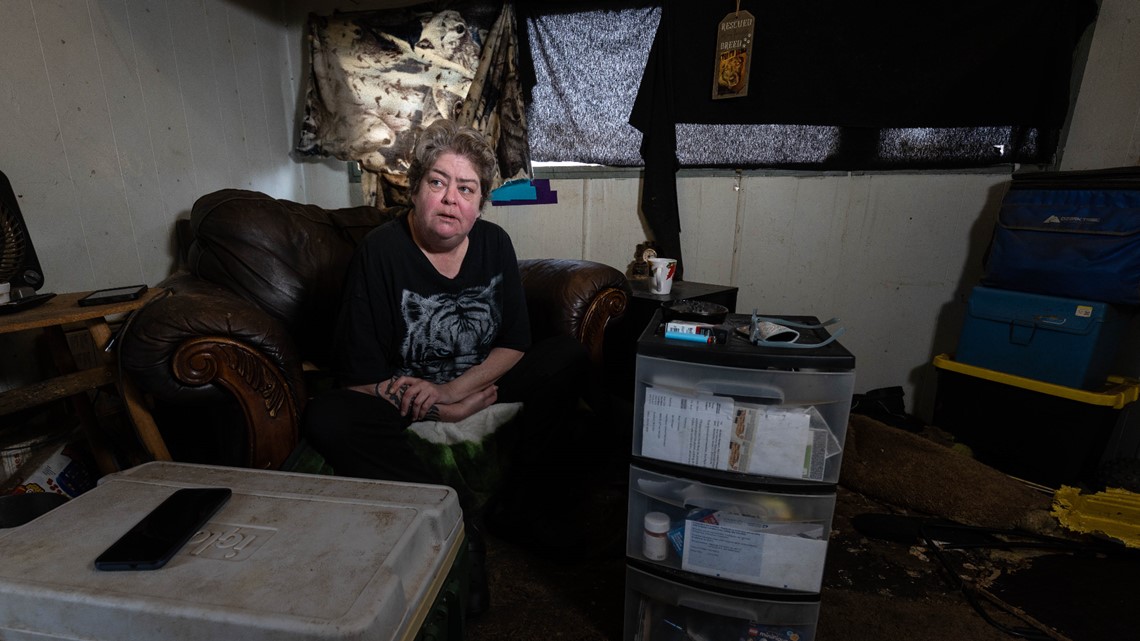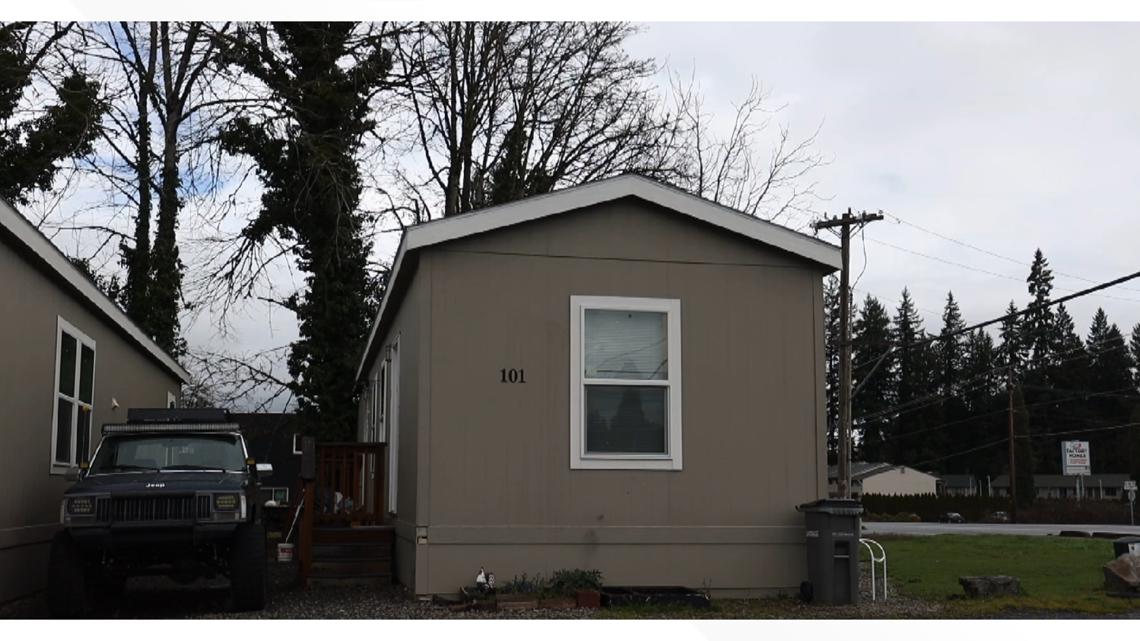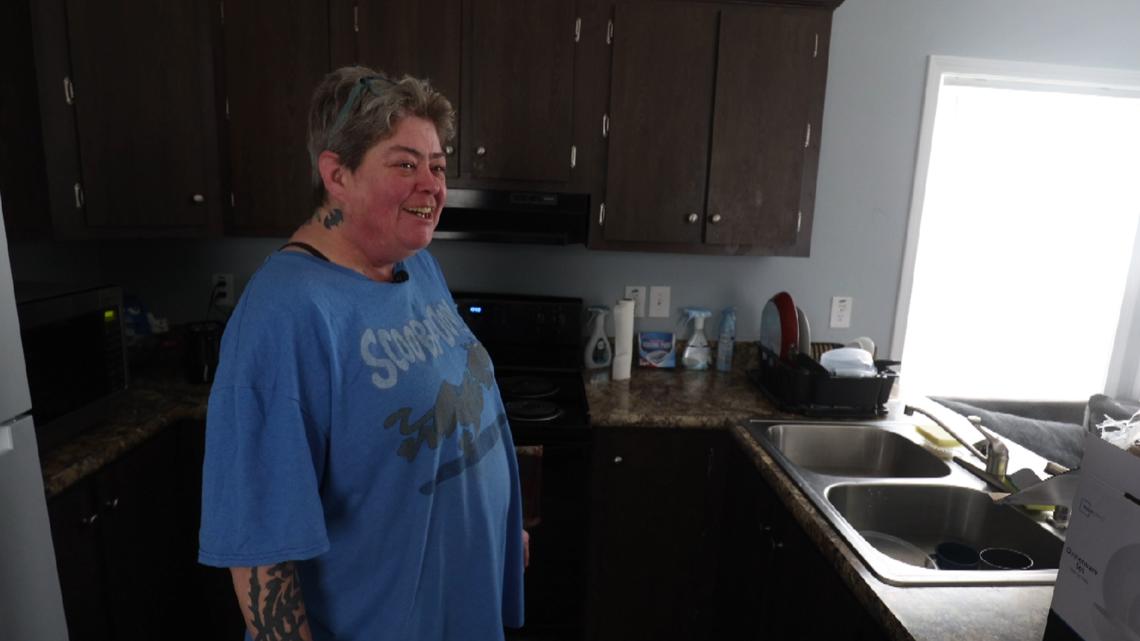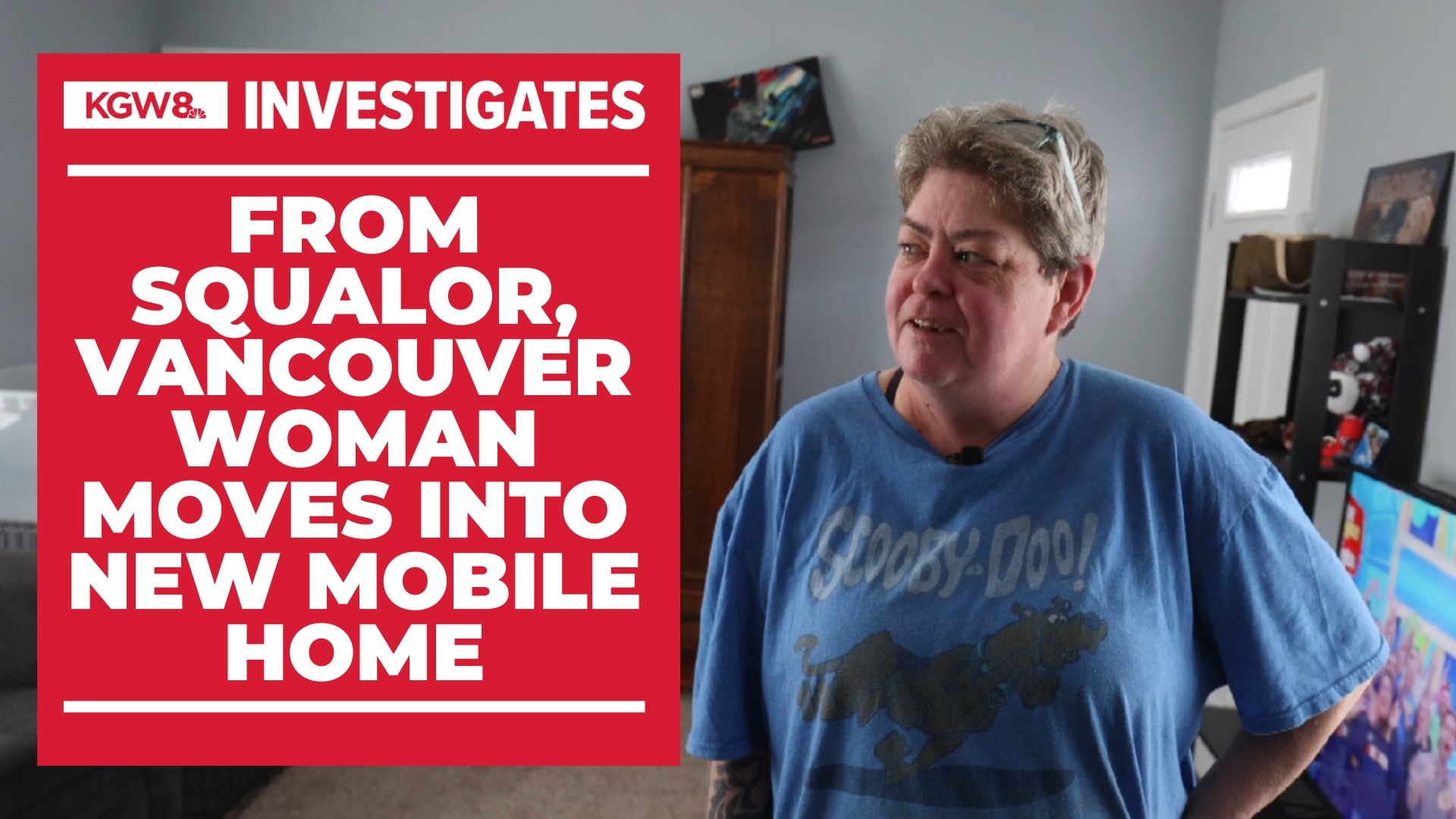PORTLAND, Oregon — Casey Jewell proudly flushed the toilet. “It’s music to my ears,” laughed Jewell as she walked through her freshly painted mobile home. There’s a nice kitchen with cabinets and appliances. The place has heating and air conditioning. The flooring looks new.
“It’s much, much better,” said Jewell after moving into the two-bedroom, one bath unit last week.
In February, KGW found Jewell living in squalor. Her rented mobile home at the Hidden RV and Mobile Home Park (also known as Hidden Village) north of Vancouver was falling apart — and no one would fix it.
At the time, Jewell had no running water. The heater was broken. The toilet had stopped working and the place had an overwhelming smell of mold and mildew. Six large buckets collected rainwater dripping through broken sheet rock and insulation after a large hole opened up in the kitchen ceiling.
Jewell and her son had complained to management repeatedly. They’d sent emails and taken photos, but nothing seemed to change.


“When you (KGW) got in contact with them, that’s when they’re like — we better do something,” explained Jewell.
KGW’s story, along with public outcry and an article in The Columbian newspaper, prompted the landlord to find Jewell a new place to call home. The unit sits right around the corner from her old mobile home.


Hidden Village and its owners, Michael and Denise Werner, said they worked with a local nonprofit to help coordinate Jewell's move. The property owners installed a new refrigerator, new carpet and added trim to the property. Her old until will be demolished in the coming weeks, the property owners said.
Jewell considers herself lucky. There are other low-income renters who don’t have the same support. Donors have contributed more than $12,000 to help Jewell cover back rent and expenses.
“Thank you for your prayers,” said a tearful Jewell.


Jewell’s story helped highlight a loophole in Washington law. She’d been paying her monthly rent of $925, along with an extra $50 each month to pay back what she owed after falling behind during the pandemic. In Washington, if tenants are behind on rent, they can’t force their landlord to make necessary fixes, explained Carl Snodgrass of Northwest Justice Project.
“I can’t believe we’ve created a system that does that,” said Snodgrass, a lawyer for the nonprofit.
A proposal before the Washington state legislature would have closed the loophole, but HB 2161 never got a hearing during the 2024 short session. The bill’s sponsor, Rep. Strom Peterson, a Democrat from Edmonds, said he’ll try again next year.
“I think that is the next logical step to make sure those really bad actors — kind of slumlords, for lack of a better term — really need to be held accountable. This is the way we can do it,” explained Peterson.
Many low-income renters live in poor conditions like Jewell did because of the Washington law, explained Snodgrass. Northwest Justice Project is helping Jewell negotiate her back rent. Snodgrass argues she shouldn’t have to pay, or the amount should be drastically reduced because of the conditions she’d been living in.
Jewell said she’s grateful for the support from the community and appreciates her new place with running water and no hole in the roof.
“I got my happy ending,” said Jewell.

